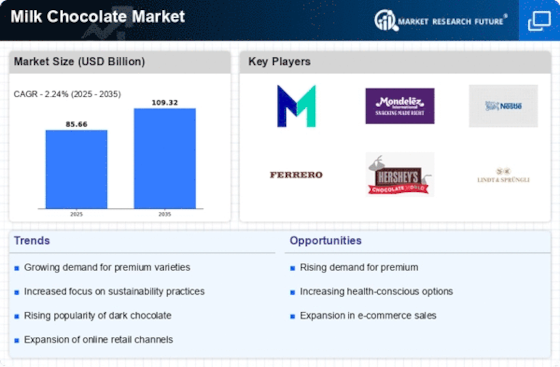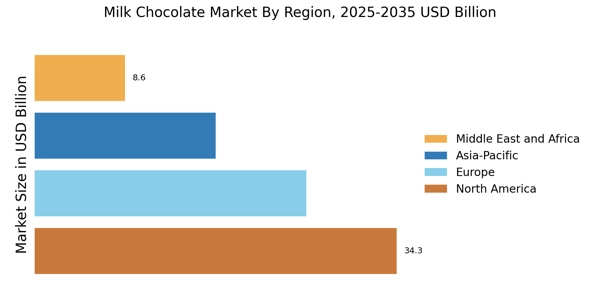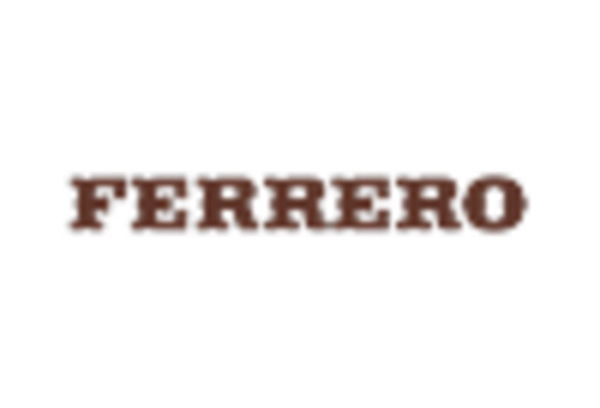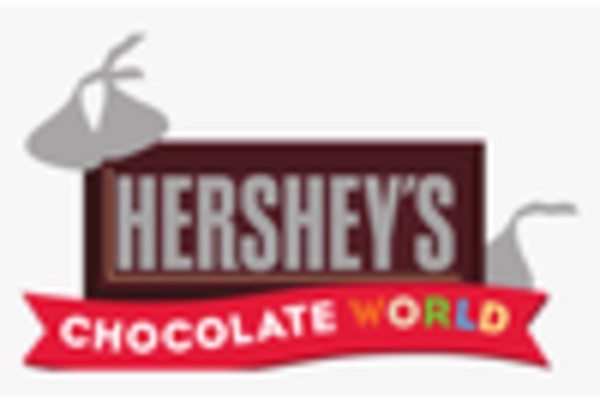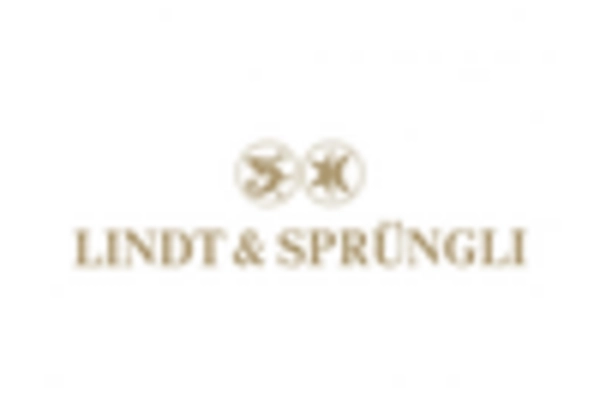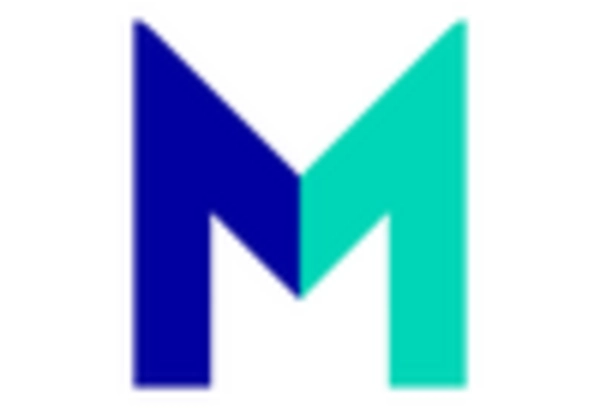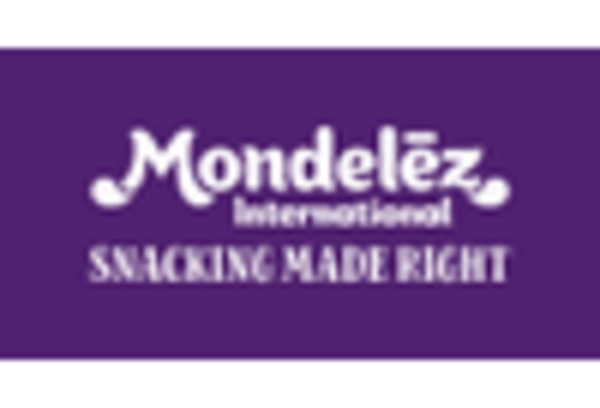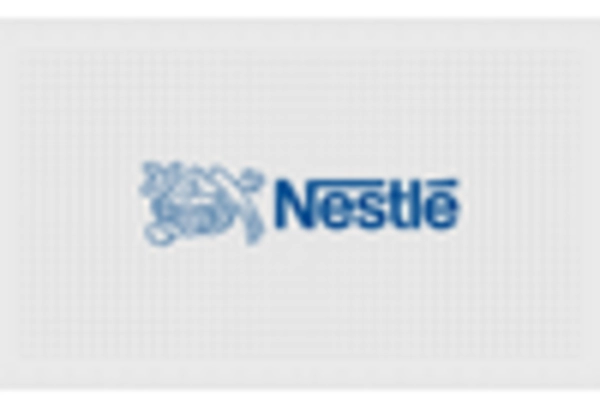E-commerce Growth
The Milk chocolate Market is significantly impacted by the rapid growth of e-commerce. With the increasing reliance on online shopping, consumers are seeking convenience and variety in their chocolate purchases. E-commerce platforms provide an opportunity for brands to reach a wider audience, including niche markets that may not be accessible through traditional retail channels. Recent statistics reveal that online sales of chocolate products have surged, indicating a shift in consumer buying behavior. As more consumers turn to online platforms for their shopping needs, the Milk Chocolate Market is likely to see continued growth in this channel, prompting brands to enhance their digital presence and marketing efforts.
Health and Wellness Trends
The Milk Chocolate Market is witnessing a growing intersection with health and wellness trends. As consumers become more health-conscious, there is a rising demand for products that offer perceived health benefits. This includes the introduction of milk chocolates with added nutrients, such as vitamins and minerals, or those that are lower in sugar. Market Research Future suggests that products marketed as healthier alternatives are gaining popularity, with a significant portion of consumers willing to pay a premium for such options. This trend indicates that the Milk Chocolate Market must adapt to meet the evolving preferences of health-oriented consumers, potentially reshaping product formulations and marketing strategies.
Innovative Flavor Profiles
The Milk Chocolate Market is experiencing a surge in innovative flavor profiles that cater to diverse consumer preferences. Manufacturers are experimenting with unique ingredients, such as exotic spices, fruits, and even savory elements, to create distinctive chocolate experiences. This trend is particularly appealing to younger consumers who seek novelty and excitement in their food choices. Market data indicates that products featuring innovative flavors have gained traction, with sales in this segment increasing significantly over the past year. As the industry evolves, the introduction of limited-edition flavors and collaborations with renowned chefs may further drive interest and sales in the Milk Chocolate Market.
Sustainability Initiatives
The Milk Chocolate Market is increasingly influenced by sustainability initiatives. Consumers are becoming more aware of the environmental impact of their purchases, leading to a demand for ethically sourced cocoa. Companies are responding by adopting sustainable practices, such as fair trade certifications and eco-friendly packaging. This shift not only appeals to environmentally conscious consumers but also enhances brand loyalty. According to recent data, brands that emphasize sustainability in their marketing strategies have seen a notable increase in sales, suggesting that sustainability is a key driver in the Milk Chocolate Market. As more companies commit to reducing their carbon footprint, the industry may witness a transformation in sourcing and production methods.
Cultural Influences and Globalization
The Milk Chocolate Market is shaped by cultural influences and globalization, which facilitate the exchange of culinary traditions and preferences across borders. As consumers become more exposed to international flavors and products, there is a growing interest in diverse chocolate offerings. This trend is evident in the rising popularity of milk chocolates that incorporate regional ingredients or traditional recipes from various cultures. Market data suggests that products reflecting cultural authenticity resonate well with consumers, leading to increased sales. As globalization continues to influence consumer tastes, the Milk Chocolate Market may see a broader range of products that cater to an increasingly diverse audience.


